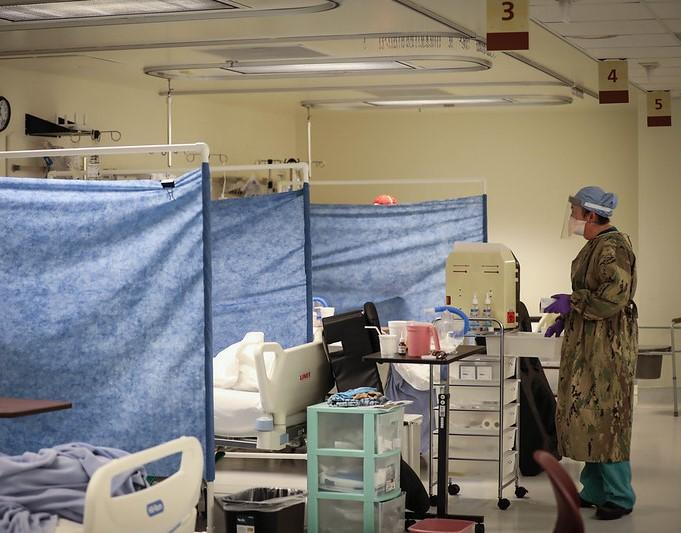A report today from the Pan American Health Organization (PAHO) shows that COVID-19 reduced life expectancy across the Americas while amplifying economic inequities and existing health disparities.
The publication, "Health in the Americas 2022," assessed the health status of the region 2 years after the pandemic began.
The Americas house 13% of the world's population, but the region has recorded 37% of confirmed COVID-19 cases and 45% of deaths globally.
Health expectancy across the region fell to levels not seen since 2004. Life expectancy in Latin America and the Caribbean decreased from 75.1 years in 2019 to 72.2 in 2021, a decline of 2.9 years. In North America, expected lifespan dropped from 79.5 years in 2019 to 77.7 in 2021, or by 1.8 years.
In addition to declining life expectancy, both routine childhood immunization levels and mental health diagnoses have suffered under the veil of COVID-19. The number of vaccines administered to children has fallen dramatically, with routine complete immunization for the diphtheria, tetanus, and pertussis vaccine falling 3.6% between 2019 and 2021 (from 84% to 81%). Complete uptake of the measles, mumps, and rubella vaccine declined from 75% to 68%, or 9.3%.
Mental health needs increase as services drop
The prevalence of depression has increased by 27.6%, and anxiety by 25.7%, relative to pre-pandemic levels, PAHO said. At the same time, 93% of countries in the region reported having significant disruptions in essential health services.
Notably, the authors of the report suggest the disruption in health services led to 1.7 million unplanned pregnancies, resulting in nearly 800,000 abortions, 2,900 maternal deaths, and nearly 39,000 infant deaths, representing a setback equivalent to 20 to 30 years of progress in this field.
In conclusion, the report suggests that, while most countries in the region sought a comprehensive response to the pandemic, "One of the greatest challenges was to coordinate the response in a context of high fragmentation at the government level and lack of critical resources in the health system."
US pediatric COVID cases drop
In other COVID-19 news, child COVID-19 cases declined for the fourth consecutive week in the United States, with 55,000 reported for the week ending Sep 22, according to the latest update from the American Academy of Pediatrics.
In the past 6 months, weekly pediatric cases have fluctuated between a low of 55,000 cases and a high of about 112,000 cases. Overall 14.7 million American children have tested positive for the virus during the pandemic—almost half of whom tested positive this year.
The 7-day average of new daily COVID-19 cases is 52,539, with 417 daily deaths, according to the New York Times tracker.
Yesterday the Food and Drug Administration (FDA) said it has authorized an additional five batches of Moderna's updated bivalent booster shots made at a facility in Indiana after it deemed them safe for use, Reuters reports. Moderna has requested the use of these vaccines to boost supply, as the government has ordered more than 170 million updated vaccine doses for this fall, in preparation for a revaccination campaign.
And today the FDA updated its COVID test policy that has a goal of continued access to tests while encouraging developers to seek approval through the pre-COVID pathways.
"Taking into account the current status of manufacturing capacity and consumer access given the Administration's important investments in tests, for most new tests, shifting to traditional premarket review would best meet the public health needs at the current stage of the COVID-19 public health emergency," said Jeff Shuren, MD, JD, director of the FDA's Center for Devices and Radiological Health in a press statement.





















